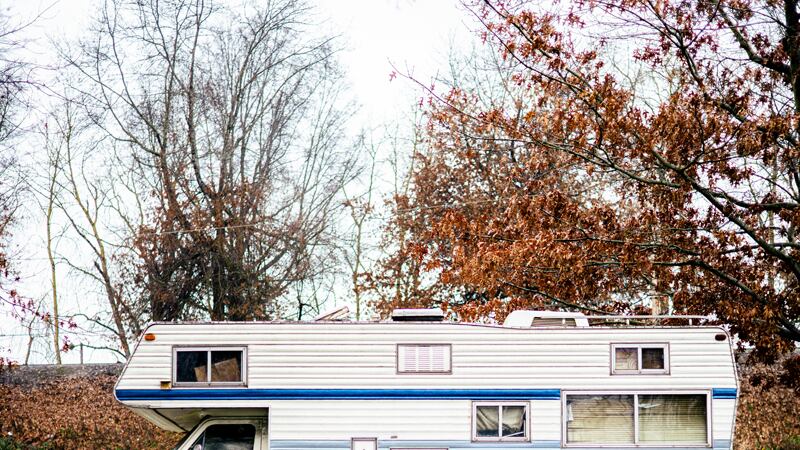LAWMAKERS SEEK TO TOW ABANDONED RVS: A group of lawmakers and local officials are moving toward legislation that would expedite the cleanup of abandoned recreational vehicles. Tom Holt, a lobbyist for the Oregon Tow Truck Association, says there are hundreds of abandoned RVs in the metro area, but the problem extends throughout the state to parks, forests and wildlands. “They are everywhere,” Holt says. WW reported earlier that the Department of State Lands is moving toward a massive cleanup of abandoned boats on state waters. Holt says current laws regarding abandoned cars and trucks provide an efficient way to move them along, but the laws regarding RVs are less helpful. A group of three dozen stakeholders is working toward a funding proposal and rules that would allow speedy cleanup—although only for RVs that have been abandoned. “We are taking care not to disrupt people who are using them for shelter,” Holt says.
CITY’S DOWNTOWN CLEANING AND SECURITY LIAISON DEPARTS: Shawn Campbell, coordinator for the city of Portland’s three enhanced service districts, left his job last week. The city declined to answer questions about Campbell’s departure and whether it was voluntary, but it comes at a curious time: The city is undergoing a community review of a scathing 2020 audit that revealed accountability and transparency issues within the districts. Such districts—in which business owners agree to pay a fee for extra cleanup and security services—have long been controversial. In addition, a local security company filed a complaint in July with the National Labor Relations Board alleging that Clean & Safe, the organization that runs the downtown district, entered into an unlawful agreement with Service Employees International Union Local 49 that resulted in the company losing a contract to an international security conglomerate. (SEIU denies the allegations. Clean & Safe and the Portland Business Alliance have not responded to requests for comment.)
BLIXSETH’S TIRE PILE IS LEGAL: Piling up tons of shredded tires along the Willamette River where they can be loaded onto a cargo ship is allowed, according to the Oregon Department of Environmental Quality. Inspectors showed up unannounced at the old Louis Dreyfus grain terminal just north of the Steel Bridge on Aug. 4 but found no violations, DEQ spokeswoman Lauren Wirtis says. “They observed two piles of tire-shred product,” Wirtis wrote in an email to WW. “No tire shreds were visible outside of the two piles. DEQ inspectors did not observe any visible dust or odor during their visit.” The DEQ inspection came after a Portland resident told WW he went on a run past the terminal in July and encountered dust and the stench of rubber (“Rubber Room,” WW, July 27). One thing had changed in the interim: A ship taking on tire shreds had left two weeks earlier. Willamette Riverkeeper Travis Williams says he wonders if the DEQ inspectors looked at stormwater containment. “That would be a potential water quality impact,” Williams says. The Portland Bureau of Environmental Services, which regulates stormwater at the site, says the terminal doesn’t need a permit because it’s not a manufacturer. The terminal is owned by Beau Blixseth, son of Oregon timber speculator Tim Blixseth, and Chandos Mahon, a shredded-tire magnate.
GENDERED FUNDRAISER RAISES EYEBROWS: Democratic lawmakers have made equity a huge focus in recent sessions—passing pay equity, family medical leave, criminal justice reforms and other laws aimed at ensuring equal treatment for all Oregonians. So several lobbyists are scratching their heads at an upcoming fundraiser organized by FuturePAC, the House Democrats’ campaign operation. Lobbyists got invitations to a Sept. 6 event titled “A Celebration of Womxn in the State House hosted by Future PAC!” Guests are invited to “join Majority Leader Julie Fahey and other womxn members of the Oregon House to celebrate our womxn-led majority and our fantastic womxn candidates.” (Tickets range from $50 to $10,000.) One female lobbyist, who requested anonymity to avoid offending lawmakers, commented on the paradox: “Seriously? What if the invitation were for ‘men in the State House’?” FuturePAC spokesman Andrew Rogers says the organization began holding such events in 2018 and it’s entirely appropriate. “The audience for this event tends to be folks who support organizations like EMILY’s List, WINPAC and Emerge Oregon—the goal being to connect folks who care about electing women to office with women candidates running,” Rogers says. “The invite went out to the entire lobby, all candidates, and supporters.”
